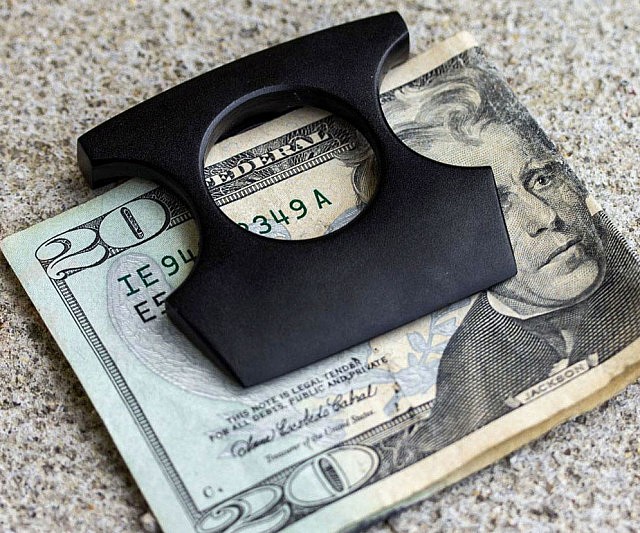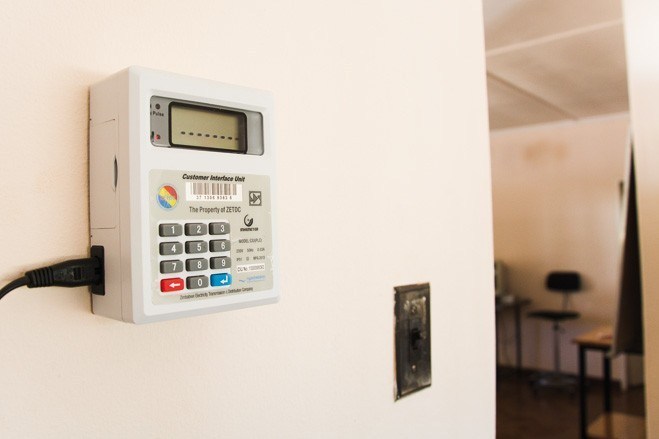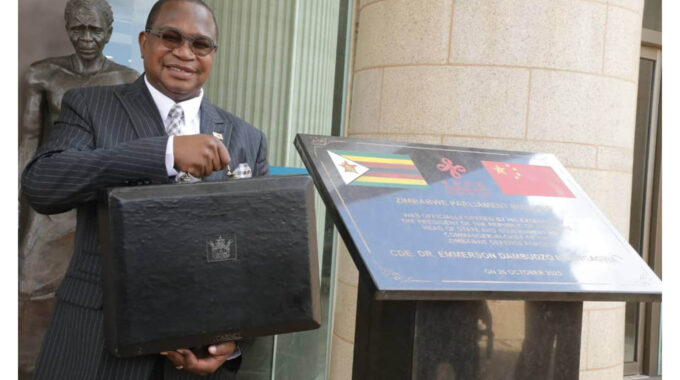Budget forcing all to register with Zimra
The 2025 National Budget makes a serious assault on the informal sector and its avoidance of taxes through some crippling presumptive taxes, US$3 000 a month for a tuck shop for example, unless these businesses register with Zimra and keep proper accounts and pay the proper taxes at the standard rates.
Minister of Finance, Economic Development and Investment Promotion Mthuli Ncube is also going after smugglers, through a list of products that will be assumed to be smuggled unless the seller can prove duty was paid, again imposing a burden only on those who do not act honestly.
There has been a general feeling, and some strong pressures, that the informal sector and those who hide much of their business dealings and those who do not keep proper accounts have been avoiding taxes and leaving the burden on the formal business sector.
A fair proportion of the time devoted to pre-budget seminars went into the vast range of tax avoidance that has become rife among the smaller businesses and smaller investors. The problem has always been finding out just who is earning what in this large ocean of business and applying the tax rates.
Enforcement costs are largely constant, it costing only a little more to audit a large business paying large sums in taxes as a small business liable to pay very little, and traditional enforcement methods mean that the tax collected from each business might be less than the cost of collecting that tax.
Modern accounting systems, and good free accounting software for individuals and small businesses is now available from the open source suppliers, so is free, and modern electronic systems being adopted by Zimra mean that the collection costs are trivial so long as taxpayers are honest and provide accurate data, and even the tax audit costs are very low if proper records are maintained.
There has been a gradual increase in extending the ranges of presumptive taxes over the past couple of decades, but with the new budget Minister Ncube is taking this a major step forward. Many of the presumptive taxes will not, in fact, be payable and will almost certainly be far larger than most of those to whom they apply would pay if they were honest and registered and paid the assessed taxes.
That appears to be the point of charging a presumptive tax of US$9 000 a quarter for spare parts dealers and grocery and kitchen goods suppliers, the tuck shops, with US$12 000 a quarter for fabric and clothing merchandisers and boutiques, and US$15 000 a quarter for hardware dealers and car dealers. Lodges can get away with US$5 000 a quarter.
When you look around it is obvious that those businesses in these categories who would have to pay taxes at higher than these levels are probably sufficiently large that they have had to formalise their operations already, so most of those who will be hit by Zimra are the smaller businesses.
Zimra will also be given the power in the new financial legislation to close any of these unregistered businesses who do not pay the huge presumptive taxes, and closure can be simply chaining their doors closed or even moving their stock to secure warehouses.
The obvious intent of the minister’s budget proposals is to get a queue of people standing outside the Zimra offices registering their businesses, keeping proper accounts and submitting proper quarterly tax returns. All you really need these days is an internet link. Considering the option is bankruptcy and closure there does not appear to be much option for the informal sector who have migrated from the pavement to fixed premises.
The minister is also looking at plugging some loopholes that tax avoidance has used. Landlords renting premises for business purposes will now have to pay 25 percent of their rents in tax. And enforcement will be cheap and easy.
Their tenants will be obliged to tell the Zimra inspectors how much they pay, and give the name and address of the landlord. If they refuse they cannot claim their rent payments as business expenses.
This should give Zimra a good list of landlords.
Miners will be unable to get prospecting and mining licences unless they have registered for corporate tax. Those tendering for any State contract of US$25 000 or more will have to be registered for VAT, since that is the threshold for VAT registration and the certificate needs to be in the tender documents.
The minister is also keen on having taxpayers who fall below thresholds automatically entering the ranks of taxpayers are their businesses grow.
A process of having micro and small businesses, who generally do not have to pay VAT on that final retail addition of value, will still have to register for virtual fiscalisation so that as they move above the US$25 000 threshold they join those who charge customers VAT and pass on the tax. Zimra will be watching them so there will be no escape.
No one will be able to borrow more than US$20 000 without proving they are registered for taxes.
The minister is also keen on reducing smuggling, at least by getting hold of the duty at some stage even if the products have been rafted across the Zambezi or Limpopo or carried across mountain paths in the east.
This has been something the formal sector, who are checked out, have wanted for some time to level playing fields, and in any case the Treasury really needs the money.
Again the minister is using presumption. A list of products will be assumed to be smuggled unless the holder has the paperwork to show they were cleared: alcoholic and non-alcoholic beverages; cement; clothing and footwear; dairy products; diapers; electrical appliances, cables and accessories; ploughs and parts thereof; processed meat; rice and pasta; sugar; tyres and motor spare parts and, washing powder and detergents.
Again the honest will not really be inconvenienced, perhaps for a couple of minutes while someone goes through the papers and ticks off what is on the shelves. So although it assumes guilt until innocence is proven it is not much of an advance on the present investigation methods that people are required to show that they imported stuff legally.
The minister was also very scathing about those in business who do not keep even the most basic records and made it clear that he thought this avoidance of records was simply to cheat on taxes.
That is now catered for with those almost impossible presumptive taxes, where if are big enough that they are around what you pay you are a sophisticated business and thus have proper records and if you are not then you need to have records and to register so you just pay your far smaller tax bills.
In the colonial past, when there were far fewer people in business above the hawker and pavement vendor level, enforcement was relatively easier.
In those days, and everything was manual at that time, there was an active group of backyard bookkeepers who would set out the sort of books and records a small businesses had to keep and once a month would convert a pile of receipts given and received into proper accounts that the tax authorities would accept.
If the business person kept the records needed it would take the bookkeeper a two or three hours to sort out the accounts and so was affordable and cheap.
A flood of little businesses now joining Zimra’s database could well open opportunities for such small bookkeeping businesses again, people who charge modest hourly rates but do not need much in the way of hours in a month or a quarter to convert accumulated paperwork into a set of accounts that Zimra is willing to accept.
The formalisation of a large part of the informal sector, everyone above the pavement vendor or market slab level, will not produce huge sums of money.
The big formal companies will remain prime payers of taxes. But on the other hand the Treasury only needs to increase tax receipts by 12 percent to keep its State employee compensation payments below the 50 percent threshold and have a lot more money for development and the capital budget.
More importantly it will mean that everyone above the payment vendors will have to pay something, perhaps not a lot but a few hundred thousand people paying a little each will amount to a large sum.-bsinesweekl









